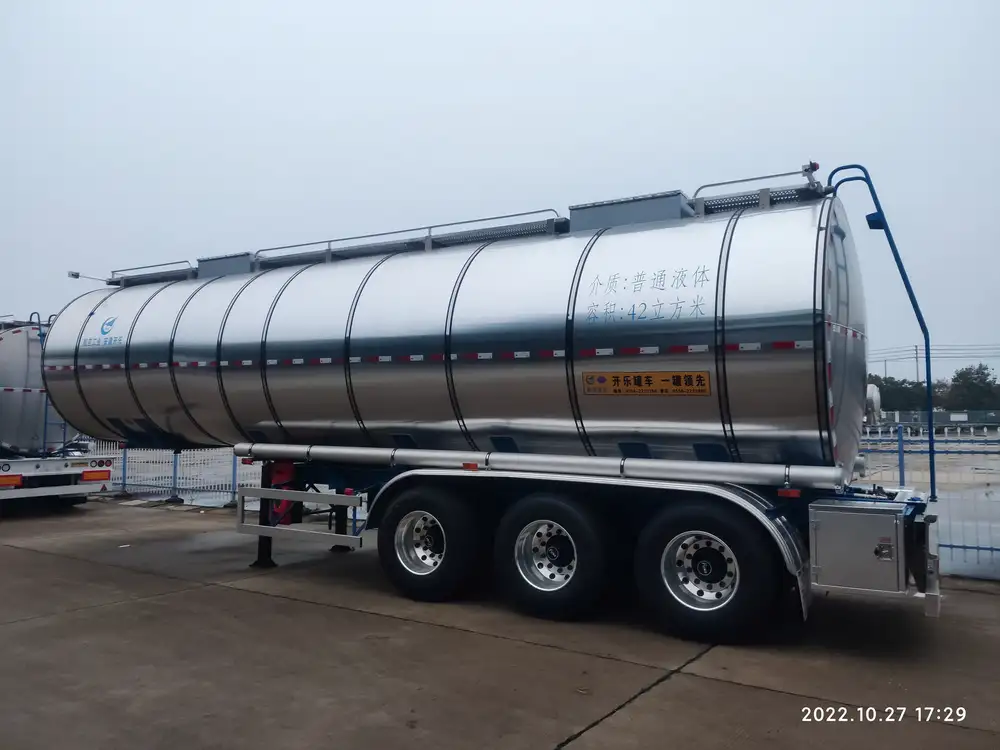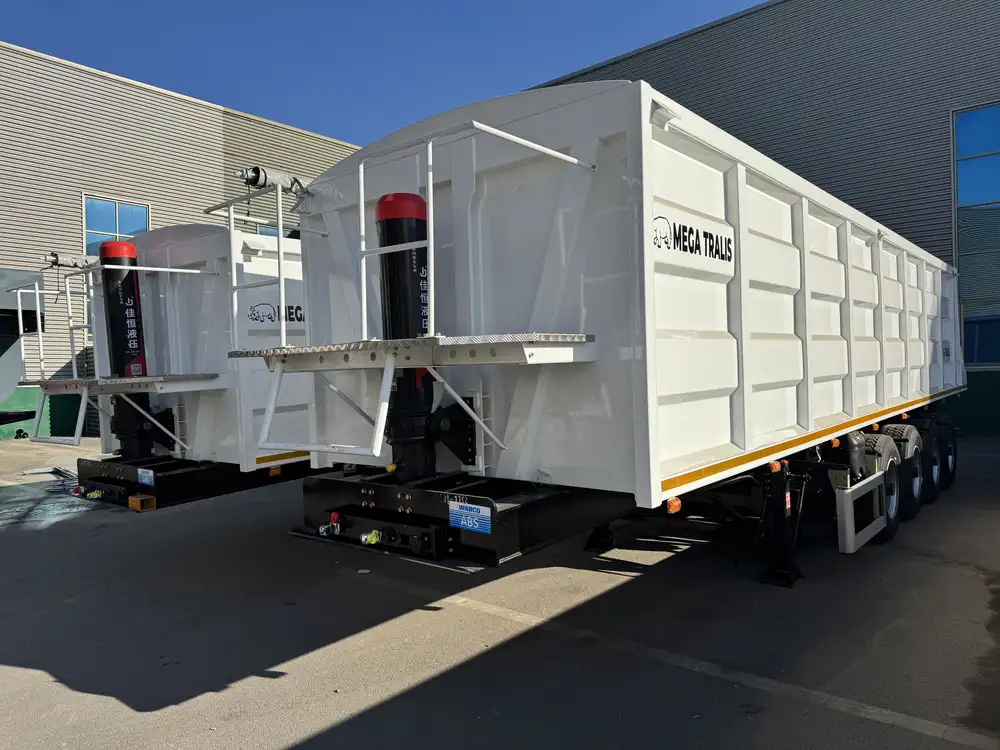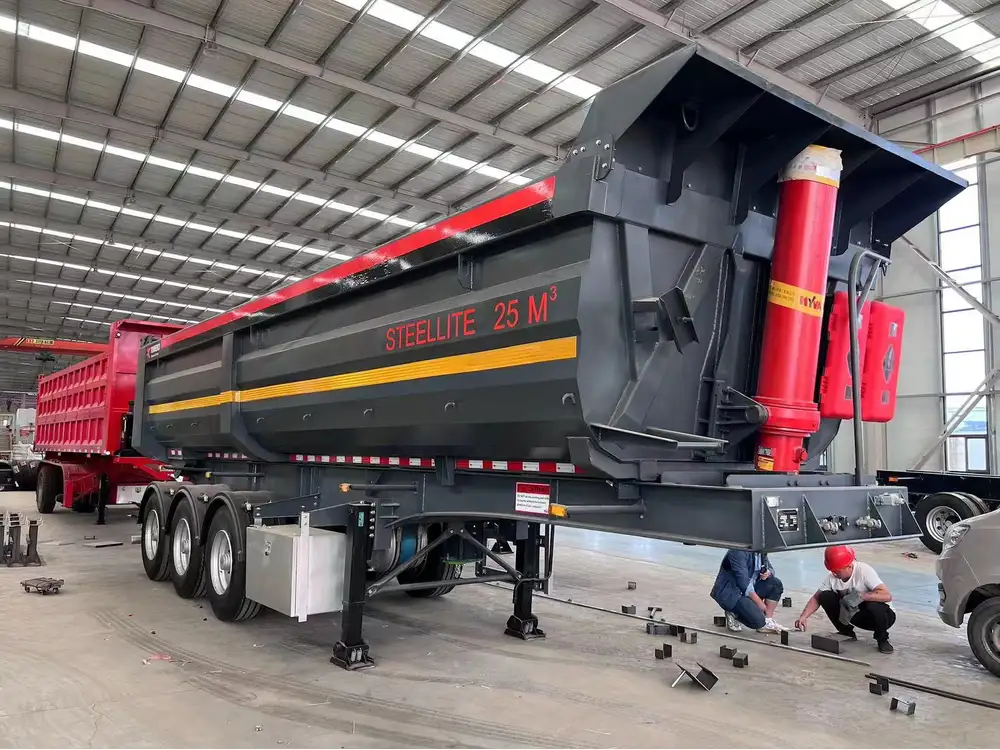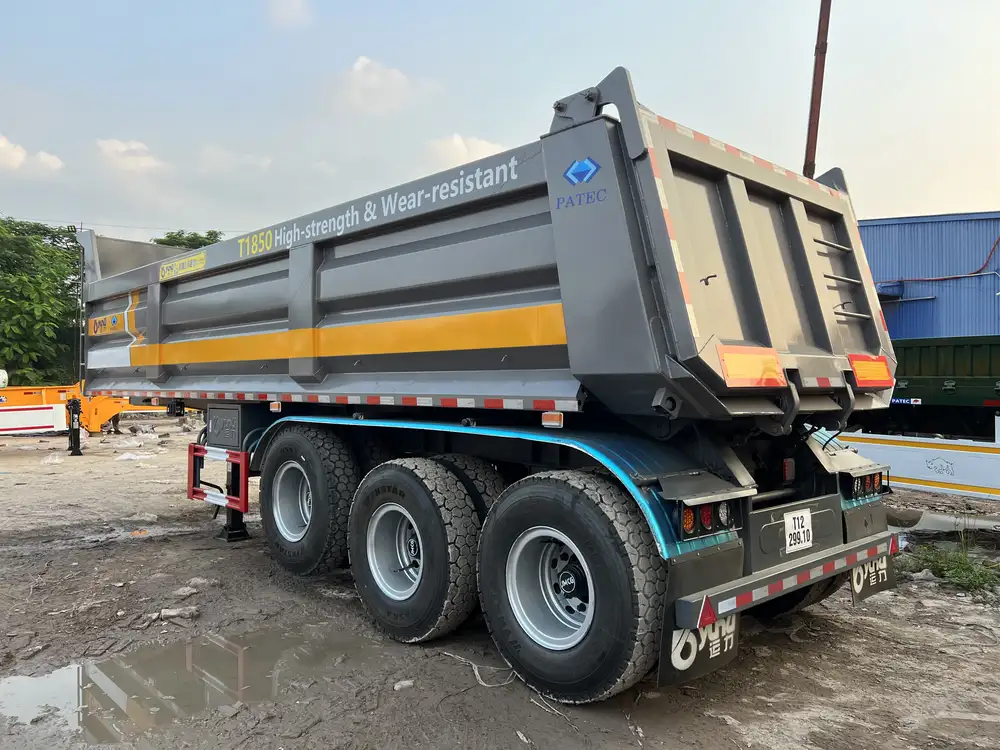Introduction
Starting a dump trailer business can be a lucrative venture, particularly in today’s economy where construction, landscaping, and various industries offer a continuous demand for reliable hauling solutions. However, entering this market requires meticulous planning, strategic insights, and in-depth knowledge of operational dynamics. In this comprehensive guide, we dissect the pivotal steps, market considerations, and essential factors that will set you on the path to success.
Understanding the Dump Trailer Market

Market Overview
The dump trailer industry caters to a diverse clientele, from contractors and landscapers to homeowners undertaking renovation projects. Each segment has unique requirements, presenting an avenue for tailored services. To grasp the market’s dynamics, consider these key aspects:
Target Audience: Identify who needs dump trailers (contractors, landscapers, event planners) and tailor your services accordingly.
Geographic Analysis: Determine your service area. Are you focusing on urban regions with high construction activity or rural areas needing agricultural support?
Competition Assessment: Assess local competitors. What do they offer? What gaps can you exploit?
| Competitor Feature | Competitor A | Competitor B | Your Business |
|---|---|---|---|
| Price Range | $X to $Y | $Z to $W | $Your Price |
| Services Offered | Standard Rental | Weekend Discounts | Custom Packages |
| Customer Reviews | 4.2/5 | 4.5/5 | TBD (Aim High!) |
Key Trends to Monitor
Sustainability: Eco-friendly practices are becoming crucial. Consider investing in energy-efficient trailers.
Technology: Integrate tech solutions for fleet management or rental scheduling.
Regulatory Changes: Keep abreast of any legal or safety regulations impacting hauling and trailer operation.
Starting Your Dump Trailer Business

Step 1: Business Planning
A thorough business plan forms the backbone of your enterprise. This document should encompass:
Executive Summary: A brief description of your business, mission statement, and vision.
Market Analysis: Detailed research on industry status, potential customer base, and competitive landscape.
Marketing Strategy: Specific tactics on how you plan to attract customers, including online and offline strategies.
Financial Projections: Include startup costs (trailer purchases, insurance, marketing), operational costs, and anticipated revenues.
Business Plan Template
| Section | Details |
|---|---|
| Business Overview | [Your Business Name] |
| Mission Statement | [Your Mission] |
| Market Analysis | [Summary of Findings] |
| Marketing Strategy | [Digital & Local Outreach] |
| Financial Projections | [Cost Estimates & Earnings] |
Step 2: Legal Considerations
Ensuring compliance with legal requirements is non-negotiable. This covers:
Business Structure: Choose between LLC, Corporation, or Sole Proprietorship.
Licenses and Permits: Research necessary permits, including vehicle permits and local business licenses.
Insurance: Comprehensive insurance coverage for your trailers and liability insurance to protect against accidents or damages.

Step 3: Financing Your Business
Assess your financing options to get your business off the ground:
Self-funding: Personal savings or investment from family.
Loans: Bank loans or Small Business Administration (SBA) loans can provide necessary capital.
Investors: Seek out angel investors interested in the construction or transportation sector.
| Financing Option | Pros | Cons |
|---|---|---|
| Self-funding | Full control | Limited capital |
| Bank Loans | Lower interest rates | Tight repayment schedules |
| Investors | More capital when needed | Shared ownership |
Equipment and Fleet Management
Selecting the Right Trailers
Choosing the appropriate dump trailers is crucial for meeting customer needs. Factors to consider include:
Size and Capacity: Identify the volume needs and pick trailers (such as 10, 12, 14 yards) that meet those dimensions.
Build Quality: Invest in durable materials to ensure longevity and reliability.
Special Features: Consider hydraulic lift systems or specialized flooring for specific loads.

Maintenance and Safety Protocols
Maintaining your fleet is essential for longevity and safety:
Regular Inspections: Establish a maintenance schedule for routine inspections of brakes, tires, and hydraulic systems.
Safety Training: Provide training for employees on equipment handling and safety protocols.
| Maintenance Task | Frequency | Details |
|---|---|---|
| Tire Inspection | Monthly | Check tread, pressure, and alignment |
| Hydraulic System | Quarterly | Inspect for leaks and functionality |
| Brake System | Annually | Comprehensive safety checks |
Marketing Your Dump Trailer Business
Branding Strategies
Develop a strong brand identity that resonates with your target audience:
Logo and Design: Create a professional logo and color scheme for your business.
Tagline: Craft a catchy tagline that reflects your unique selling proposition.

Online Presence
In today’s digital world, an effective online presence cannot be ignored:
Website: Develop a user-friendly website showcasing your services, contact information, and testimonial sections.
SEO Optimization: Utilize keywords related to dump trailers in your site content to enhance search visibility. For instance, use phrases like “affordable dump trailer rental” or “high-quality dump trailers for construction.”
Social Media: Use platforms like Facebook, Instagram, and LinkedIn to engage with customers, share projects, and post promotions.
Local Outreach
Don’t underestimate the power of local marketing:
Networking: Engage with local construction and landscaping associations.
Community Events: Sponsor local events or trade shows to boost visibility.
Customer Service Excellence

Creating a Customer-Centric Culture
Exceptional customer service can set your business apart. Consider the following practices:
Response Time: Aim for quick responses to inquiries, ideally within 24 hours.
Client Follow-Ups: Regular follow-ups after service to obtain feedback, ensuring customer satisfaction.
Building Loyalty
Loyalty Programs: Introduce loyalty programs or discounts for repeat customers.
Referrals: Encourage satisfied customers to refer others, potentially incentivizing them with discounts.
Financial Management

Budgeting
Implement robust budgeting practices to monitor income and expenses:
Expense Tracking: Identify all operational costs, including maintenance, insurance, and marketing.
Revenue Forecasting: Set realistic revenue projections based on market analysis and service pricing.
Accounting Procedures
Consider investing in reliable accounting software or hiring an accountant to streamline financial processes.
Scaling Your Dump Trailer Business
As your business grows, consider the following strategies for scaling:

Expanding Your Fleet
Invest in additional trailers to meet increased demand, ensuring you have a variety to cater to different customer needs.
Diversifying Services
Explore complementary services like:
Hauling and Disposal: Broaden your offering by including disposal services for construction debris or landscaping waste.
Maintenance Services: Offer maintenance and repairs to other businesses or individuals within your community, establishing additional revenue streams.
Partnerships and Collaborations
Form partnerships with contractors, landscapers, or event planners to create referral channels that benefit both parties.

Conclusion
Embarking on the journey to start a dump trailer business is akin to constructing a sturdy building; it requires a solid foundation, thoughtful planning, and adaptive strategies. By understanding market dynamics, establishing robust operational processes, and committing to exceptional customer service, your business can thrive in an increasingly competitive landscape. Prepare to navigate challenges, seize opportunities, and drive your dump trailer business to success.



